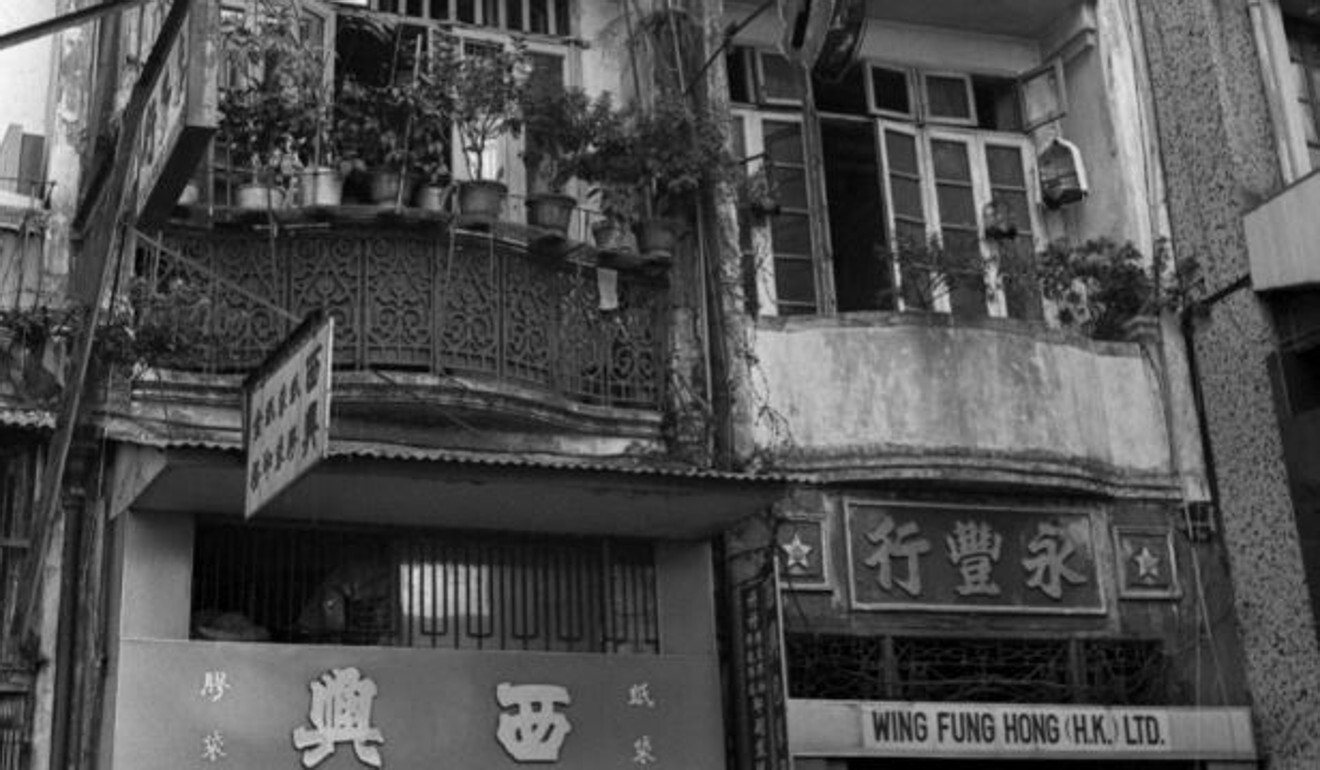
Bird Talk: in Xu Xu’s short stories, Hong Kong is a symbol of new beginnings and opportunity
- The Chinese author’s short story collection has been translated into English for the first time
- The tales chart socio-political narratives and memories of the writer’s own itinerant life

Bird Talk and Other Stories by Xu Xu (translated by Frederik H. Green), Stone Bridge Press. 4/5 stars
Early in Xu Xu’s short story “When Ah Heung Came to Gousing Road”, we are introduced to the titular street in 1960s Hong Kong. The area is described as a “steep little alley”, which near the top contains luxury houses and near the bottom three little stalls run by a shoemaker, a key cutter and a florist.
While the introduction of Gousing Road – most probably today’s Ko Shing Street in Sheung Wan – is historically accurate, Xu Xu likely also selected this area for its metaphorical significance. “Gou sing”, meaning “rising high”, foreshadows growth, ambition and commerce, three significant factors that are predominant themes in the story, and that led to the city’s economic boom in the latter half of the 20th century.
This emphasis on language and symbolism is prevalent in Xu Xu’s short story collection Bird Talk, translated for the first time into English by Frederik Green.

The five tales were written between 1937 and 1965, charting socio-political narratives and memories of the writer’s own itinerant life, and painful exile from pre-war Shanghai to colonial Hong Kong via sojourns in Taiwan and Europe.
Included in the anthology are introductions to each story, by Green, as well as an afterword on post-war diasporic literature. There are also portraits of the author and covers of periodicals that carried his writing, including his own short-lived monthly, The Seven Arts, published in Hong Kong in the 1970s.
This context provides English-language readers with a rich introduction to Xu Xu’s life and his reflections on a changing world. In the earliest published story, “Ghost Talk”, a man becomes enamoured with a cosmopolitan, learned woman claiming to be a ghost, taking long nightly walks with her through the dark streets of Shanghai.
The pair embody a modernising, liberal Shanghai, conversing on topics such as literature, philosophy and language – the female protagonist even speaks Hebrew to the Jewish cafe owner in the French Concession. Yet they also pass like spirits in a landscape of trauma and memory, especially when they reach Xietu Road – an area which, Green tells us in his introduction, is close to Longhua jail, where thousands of political prisoners were held from 1927 to 1937.
Nostalgic sorrow and grief punctuate most of the stories, although these emotions manifest in complex ways. In “The All-Souls Tree”, a female character yearns for her lover left behind in Beijing after the retreat of the Kuomintang to Taiwan.
In the poetically crafted “Bird Talk”, the male protagonist reminisces about his relationship with his ex-fiancée, Yunqian, after their split many years ago. He recalls that despite his well-intended efforts to ground her in Shanghai and teach her basic domestic duties, she understood only spiritual matters – she talked with birds – and they eventually parted ways at a Buddhist monastery.
Here, Xu Xu’s artistic sensibilities are mixed with evocative depictions of rural and urban life, teasing out the differences between the quietude of nature and the aggressively developing civilian world. Looking at a poem written by the protagonist, which first drew Yunqian close to him, we see the foreshadowing of her rejection of urban life: “Perching on telephone lines that criss-cross the land, / Shall we keep listening to man’s foolish rant, / Or better just fly away now for they’ll never understand?”
The women in Xu Xu’s stories are remarkable for their independence, yet they also represent certain literary motifs. Yunqian, for example, evokes the purity and innocence of nostalgia, and her absence from the male protagonist’s life could be seen as a metaphor for the grief many Chinese felt in exile, unable to return to a home that no longer exists.
Contrastingly, in “The Jewish Comet”, Catherine – a woman of Jewish descent – is a symbol of rebellion. First introduced as an heiress to a large fortune, she is quickly revealed to be a Spanish spy, conspiring to overthrow Italian fascists. After disclosing her identity to her Chinese male companion and lover, she marries him and then leaves, sacrificing herself to the cause. Near the story’s close, Catherine says to her lover, “What’s the weight of one of us compared to the suffering of the Spanish people?”
Xu Xu, who died in 1980, seems to suggest that while the path to revolution and change may be a collective one, it is unique to each individual
Xu Xu, who died in 1980, seems to suggest that while the path to revolution and change may be a collective one, it is unique to each individual. He may also have been critiquing certain Chinese leftists who had deemed his writing frivolous and anti-Chinese, which led to him leaving the newly founded People’s Republic of China for Hong Kong in 1950.
Bird Talk ends on a more ambiguous note. In 1950’s “When Ah Heung Came to Gousing Road” we learn that the titular character as well as two of her working-class friends, the key cutter and the florist, are immigrants from Guangzhou. Through a series of events, Ah Heung manages to promote herself from maid to mistress of a wealthy household, in the process also bargaining for her friends, who each gain a store in a newly built Kowloon high-rise.
Written in a witty, light-hearted tone, the story highlights how Hong Kong was romanticised as a city of new beginnings and businesses – a place where diligence, hard work and integrity could pay off. This is where many like Xu Xu, sick with longing and trauma and facing a harsh new world, could begin to heal themselves.